UK act of parliament authorizes torture and rape under "certain circumstances"
Proposed legislation giving police sweeping powers to decide whether protests are justified, the power to impose start and finish times and even the right to disband one-person protests has led to nationwide protests.
The legislation includes vague criteria such as being “too loud” or a “nuisance” as being sufficient justification for any action undertaken by UK police during protests.
The protestors feel that the Police, Courts, Sentencing and Crimes bill violates their right to free speech and right to assembly.
Laws have also been passed by HM government which would result in undercover agents being granted Criminal Conduct Authorizations authorizing them, as the name implies, to engage in criminal conduct including rape, murder and torture without any legal culpability.
One controversial bill, the Overseas Operations Bill, stipulates a statute of limitations on war crimes prosecutions against British troops, effectively legalizing war crimes, including torture, rape and other crimes.
Currently people all over Britain are out protesting against a controversial new law that would essentially make protesting illegal and slap harsh sentences on those who fail to comply.
The movement called Kill the Bill seeks to stop this legislation while it's still in passage through Parliament. However, in recent months the United Kingdom also passed two other laws that effectively and explicitly allow undercover agents in Britain to commit any crime and give British troops immunity from war crimes prosecutions, the latter of these has gone largely unnoticed by the British public at large.
The Police State
The British government has spent the last few months enacting or attempting to enact extremely worrying legislation.
These bills will completely destroy any shred of Britain's democracy. There are three bills, two of which have already been passed and the third is currently pending, which will completely alter British democracy.
Although there was considerable debate in Parliament, these controversial and worrying bills were barely covered by the mainstream media.
Police, Crime, Sentencing and Courts Bill
The first cause for concern is Police, Crime, Sentencing and Courts Bill, also known as the anti protest bill. This is the bill at the centre of the kill the bill protests that are currently underway all over the United Kingdom.
The second bill is the Covert Human Intelligence Sources, CHIS, Act, also nicknamed the Spy Cops bill.
And finally, the third is the Overseas Operations Act 2021.
Now, despite the fact that these bills are extremely archaic, authoritarian and threaten civil liberties, along with international law, the British public is almost completely unaware of their existence, with perhaps the sole exception being the anti protest bill simply because of the widespread unrest and protests that it has caused in the country.
On March 17th, 2021, a vigil was held for 33 year old Sarah Everard, whose body was found earlier that month in London.
Wayne Couzens, 48, a serving officer in the London Metropolitan Police is accused of murdering her and is currently in custody pending trial.
The largely peaceful vigil turned violent when police attempted to disperse and shut down the event.
Scenes of women being violently dragged, arrested and manhandled by the police were met with disgust and shock. The vigil, and the violent arrests that took place there, occurred just as a new piece of legislation was being introduced, which helped spark the kill the bill movement.
In March 2021, Britain's Tory government under Boris Johnson introduced the Police Crime, Sentencing and Courts Bill.
The goal of this mammoth piece of legislation is essentially to shake up the criminal justice system in England and Wales.
The reason people are so upset about it is because it gives the police sweeping new powers where they can randomly decide whether a protest is justified or unjustified, and shut it down on the spot. This even includes protests by a single person, not only that but the police would also be able to impose a start and a finish time.
The criteria proposed for shutting down a protest includes vague arbitrary language like being "too loud", or "a nuisance".
Home Secretary Priti Patel when asked about what these things mean, couldn't even give a straight answer.
People who refuse to comply with police orders can be fined up to 2500 pounds. The punishment for defacing or damaging memorials has been increased from three months to 10 years.
This comes in the wake of Black Lives Matter protests in the summer of 2020 when the statue of slave trader Edward Colston was thrown into the Bristol docks.
In order to help ease the passage of this bill through Parliament, Prime Minister, Boris Johnson, as well as Home Secretary, Pritti Pattel, have deflected by pointing to other things in the bill that would give life sentences to killer drivers, for example, or harsher sentencing for premeditated child murder and serious violence against emergency workers.
But this doesn't address the concerns with giving police sweeping powers to disband protests, given that free speech and the right to free assembly are considered pillars of a liberal democracy, many view the legislation as authoritarian and a violation of the Human Rights Act.
As a result, protests have erupted in response all over Britain including London, Bristol, Birmingham, Liverpool and other major cities, with hundreds being arrested and detained by police almost weekly.
Currently, the anti protest bill has passed its first and second readings and it's at the Committee stage. While this act is currently still pending, there are two others that are just as dangerous that have been largely unnoticed and unreported, while having made their way through Parliament and becoming law.
The Covert Human Intelligence Sources bill, or CHIS Bill, which is also nicknamed the Spy Cops Bill, gives undercover agents permission to commit crimes through a so called Criminal Conduct Authorization. This could include rape, torture, murder, and other violent crimes.
These criminal conduct authorizations are not just for MI5, Britain's domestic security service, but also for any police force in Britain. this includes agencies like the gambling Commission, the Food Standards Agency, the Home Office, the Ministry of Justice, and several other government departments.
Undercover officers can commit criminal acts, if it's in the interest of national security, and also in the economic interests of the United Kingdom. Unions and other direct action groups have previously been targeted in the past by undercover police and infiltrated.
We've seen police disproportionately target left wing groups, activists and ordinary protesters while providing cover to right wing and far right groups.
The Guardian reports in 2019 that Scotland Yard had been forced to pay a total of more than 700,000 pounds in compensation to 153 anti fascist campaigners, who were arrested by police during a demonstration and detained for up to 14 hours.
The Guardian also disclosed in 2018 that The London Metropolitan Police had used over two dozen officers to infiltrate left wing groups as part of an undercover spying campaign that spanned 37 years.
When the time came for parliament to vote on this bill, the Labour leader, Sir Keir Starmer, didn't tell his party to vote NO and oppose the bill. Instead, he told them to abstain. And given that this is a piece of Tory legislation and the Tories are bound to vote overwhelmingly YES, the majority of labour being whipped to abstain had the effect of simply letting the bill pass through the House of Commons unopposed; a complete gift to the conservatives.
There were However, 34 Labour MPs who decided to rebel and vote against the legislation, among them former Labour leader Jeremy Corbyn, for breaking the whip various Labour MPs, including seven front benches, were punished by Stormer for voting against it like Nadia Edith Whittome, the MP for Nottingham East, who was sacked as a consequence.
Once the Spy Cops Bill reached the House of Lords an amendment was put forward to make sure that undercover agents could not commit murder, rape and torture as part of their duties.
The amendment was passed, removing some of the most heinous crimes from a heinous bill.
Nonetheless, when the bill was sent back to the House of Commons, the amendment to ban murder, rape and torture was removed.
The CHIS Bill was passed more or less in its original form allowing undercover agents to do whatever they like.
It was passed through Parliament and received Royal Assent on March 1st, 2021. And at every step of the way, the bill went through virtually unopposed.
Even amendments to ban the use of children or to limit the scope of these crimes that undercover agents could undertake were all defeated.
It goes without saying that such catre blanche to commit crimes, a Licence to Kill in the wrong hands can be devastating and gives the state extraordinary powers over the lives of ordinary citizens.
It is reckless at best and authoritarianism at worst. Another extremely concerning bill that also has made its way through Parliament and just become law is the Overseas Operations Bill. This bill completed its passage through Parliament on April 29th, 2021.
The overseas bill proposes a so called presumption against prosecution for servicemembers overseas and essentially gives British soldiers immunity from being prosecuted for war crimes.
It introduces a statute of limitation of five years, meaning that if an alleged crime took place more than five years ago, it will not be considered by the courts or the Ministry of Defence.
The reason the British government wants to pass this bill is because it claims to protect British troops from what it calls "vexatious claims of war crimes and other atrocities". Essentially, the British government is saying it thinks war crimes allegations are annoying, and wants to ban older ones altogether.
Previously, the UK had opened two investigations into war crimes by British troops. In 2014 it set up Operation Northmoor to investigate war crimes in Afghanistan, and then in 2010, The Iraq Historic Allegations Team, or IHAT for war crimes in Iraq.
Years later, and not a single British soldier has ever been prosecuted for the crimes in these investigations, despite the inquiries making recommendations to do so when evidence of cover ups was discovered.
Instead, the British government shut down Operation Northmoor, and IHAT, without bringing charges on a single case. And just to further illustrate their animosity, Operation Northmoor was closed before any Afghans were even interviewed.
The British government thinks that these war crimes investigations were a waste of time and money and that people were unjustly accusing British troops so it wants to introduce a statute of limitation which gives British soldiers immunity from prosecution for war crimes, torture and other heinous crimes older than five years.
This bill has been rightly, if insufficiently, criticised for its violations of the Geneva Conventions, the Convention Against Torture and other cruel, inhumane or degrading treatment or punishment.
The bill was passed with an overwhelming majority of Tories voting YES and labour abstaining.
Jeremy Corbyn was one of the few labour MPs to vote against it, saying that the overseas operations bill violates essential rule of law principles, including the absolute prohibition of torture. It also fails to protect the safety, well being, and rights of our military personnel.
The House of Lords actually managed to pass an amendment which would not give immunity for war crimes, torture crimes against humanity and genocide.
However, once this was sent back to the House of Commons, the amendment was defeated.
The overseas operations bill ultimately made it into law allowing these heinous crimes to be protected by the government. It received Royal Assent on April 29th, 2021. And while the British government claims that this doesn't violate the Human Rights Act of 1998, it still included a clause allowing itself to derogate from the European Convention of Human Rights, if it wishes to do so.
Can you tell us why people are so upset about these laws, specifically the Police, Crime, Sentencing and Courts Bill, which is also called the anti protest bill?
Yes. So you have actually dozens of protests either that have occurred or are planned by all manner of groups across the country. So it's a very wide and diverse coalition, in opposition to the Police, Crime, Sentencing and Courts Bill that's making its way through Parliament, currently.
The new bill gives the police more power to impose conditions on a protest including ones they view as too noisy, and it's not just protest, the bill will make trespass an offence, criminalising Gypsy Roma and traveller communities and introduces new stop and search powers that will increase racial profiling and harassment.
The bill will ban protests that block roads around parliament, it also allows the police to impose conditions on one person protests. Yeah, because we know how much of a plague those are on our society, those one person protests, and it will introduce a new offence punishable by up to 10 years in prison of for, for" public nuisance," right for actions that cause "serious distress, serious, annoyance, serious inconvenience, as he writes.
Yes, that's right. If you cause serious annoyance on a protest, you could go to jail for a decades. And to put that into perspective, you have also 10 years sentences for damaging a memorial or a statue, which means you could get a longer sentence for damaging an inanimate object than the average sentence given to rapists.
Mohamed Elmaazi, Journalist
So who, exactly, gets to decide what's too noisy and what constitutes a nuisance?
The police, you know, what happens is when you expand powers, that means you also have police acting even beyond the expanded powers as just what history has taught us. So they already acting beyond the powers they've got now. And that means with further expansive powers, they'll act beyond that. And like you say, who gets to decide? Well it is going to be the police at any given moment, at any given location that gets to decide and it's, you know, it's a, it's a very concerning situation, especially like I say, given all the laws that keep being passed that offer more and more power to detain people to stop and search people to and ultimately to imprison people.
Mohamed Elmaazi, Journalist
Regarding the CHIS bill or spy cops bill, there was some attempts made to amend it, to take out some of the worst crimes that would be permitted under a criminal conduct authorization, but this ultimately failed.
Can you walk us through what happened and what the law finally looks like?
Basically, what that does is it provides pre emptive immunity for what they call a limited number of agencies, which is 10 government agencies plus the entirety of all the police forces and the armed forces as well, so Air Force, Navy, Army to and that would also be the Environmental Protection Agency, if you lik,e the tax authority, the Department for health, various other regulators so only on here Yeah, the gambling authority. So basically only every single department you've ever heard of. It would allow them to to issue what are known as criminal conduct authorizations based to either people who are direct employees of the states, right, or like undercover officers working for any of these agencies or their assets, civilians that are recruited by them. And it would say that whoever the authorizing officer is, they can authorize criminal conduct, but the amendments included, for example, prohibiting the authorization of rape, torture and murder. Yeah, that was backed by various labor MPs, although a minority like Jeremy Corbyn, it was backed by some Tory MPs and various people introduce their own versions of these rights. Attempts to either completely prohibit or at least highly restrict their use against unions failed, right. So that means you can authorize criminal conduct within organized labor collective organizations, attempts to restrict or completely prohibit the use of juveniles and victims of sex trafficking. And what have you, in their entirety that failed, although I think, ultimately, it was an amendment did pass so that they can only be done in "exceptional circumstances", whatever that means.
Mohamed Elmaazi, Journalist
The Overseas Operations (Service Personnel and Veterans) Act 2021, they say that it's supposedly meant to protect soldiers, is that true?
This introduces a presumption against prosecuting soldiers for crimes, if if the alleged incident was more than five years, more than five years from whatever the time period is. So if you're going to bring charges now against a soldier, which is very rare, by the way anyway, in practice, but if you're going to do it, if it's more than five years, there's a presumption against prosecution, and you actually need to get permission from the Attorney General and then also actually reduces the rights of soldiers as well, there's a presumption against bringing civil and criminal claims against the Ministry of Defence.
But if you're say, if you're an Iraqi civilian, but also if you're on a British soldier, so if you're British soldier, and you want to sue the Ministry of Defence, then it becomes the same issue if it's more than six years. So it's whether you're a civilian or soldier bringing civil action against the MOD.
So right now, anything you're accused of doing, if it was more than five years ago, there's a presumption against prosecution.
Now on the flip side of that, so I suppose if you mean protect soldiers who would be guilty or conceivably guilty of war crimes from accountability? Well, in that case, yes, it would protect them. But in terms of protecting soldiers, who are not guilty, it doesn't actually do that.
I've read all kinds of commentary that also say the things even they say it's supposed to do, it doesn't do, including from the Law Society, by the way, the Law Society, which everyone is a member of, if you're a solicitor. What one of the things that it also does, is it if we haven't discussed this yet, right, where there's another presumption against, against allowing claims, civil claims against the Ministry of Defence, whether you're a civilian or a soldier, if you're impacted by any of these overseas operations. So whether let's say you are an Iraqi civilian, if you want to bring a civil claim, or if you are a British soldier, and you want to bring a claim, right, and in fact, there have been far more successful civil claims that have been brought, including by soldiers against the Ministry of Defence for the way they were treated.
I mean, let's not forget, that rape is an issue within the military, not just against civilian populations, but against, you know, soldiers against other soldiers and officers against their subordinates.
And other things as well, you can imagine, you know, the dumping of say, like the use of chemical weapons, or the use of weapons that have radioactive components to them, like so. So, so called depleted uranium shells, which is very misleading.
Depleted uranium just means there's, there's less of it. It doesn't mean there's no uranium otherwise, what would be the point of calling it that right, it's, it's a misleading term.
And in fact, in areas where there's been heavy use of depleted uranium, we have heavy amounts of depleted uranium shells, you have all kinds of birth defects lasting, you know, they've been shown to go on for decades, right? Because, of course, if you damage the DNA and the sex cells and that gets passed on to the children and passed on to their children and their children, so it doesn't really protect soldiers because it makes it more difficult for them to bring civil claims whether there'll be for sexual or other forms of misconduct and you might not even realize you have a claim.
You might feel pressured not to bring a claim. You might be frightened to bring a claim. You might not even be aware that you are suffering from the conditions you suffer from or you may need some Report, you know, and why is it that there should be a separate set of laws, a two tiered legal system for people engaged in overseas operations than they would have here? Why should you be able to do things abroad as well that you would not be able to do here?
Unless, of course, there's a code of criminal conduct authorization that would authorise you to do those things.
Mohamed Elmaazi, Journalist
We hear from the Tories that they don't want British troops to be subject to bogus claims of war crimes.
These claims are said to be bogus, but they're not actually untrue.
I mean, don't get me wrong, there was a case of a lawyer fabricating claims, right. And of course, that lawyer has done a great disservice not only to the legal profession, but to Iraqi civilians and civilians everywhere, and, of course, anybody who was wrongly implicated as well, but the idea that you would suddenly effectively grant immunity for war crimes and crimes against humanity, because people you, don't you I mean, you don't say that you can't bring a rape claim? Like, I mean, there will always be the possibility of fraudulent claims being brought. That doesn't mean that you say, Well, now there's a presumption against accountability, if it's more than some arbitrary date. So it's, you know, that was a major gift to the state, but it's, it's not like they needed an excuse. And the fact that you're right, I mean, quite frankly, long before those bogus charges or claims that were brought. It's not like the British Armed Forces were known for properly investigating work rights, you know what I mean?
So it's not like, well, we we've done such a brilliant job. Courts already have a way of, of investigating, of determining if a claim seems like it's unmeritorious or it's highly unlikely. That's the whole point of an investigation. That's the whole point of having a trial process if anything. Lack of accountability is already an issue.
Mohamed Elmaazi, Journalist
In 2021, the Labour Party is not an opposition party. Sir Keir Starmer whipped all his MPs into abstaining on these key pieces of legislation knowing full well that the Tories would overwhelmingly vote for them.
Abstaining was basically just a way of letting all of these bills through unopposed. This is not an opposition party. This party has been co-opted by Zionists, corporatists and the same British political and media elite who run the Tory party and run the affairs of the UK. Starmer, a former MI5 agent, made sure once he got in to continue smearing Corbin, the same man with swelled Labor’s ranks and inspired 1000s of young people to come out and join.
But now that Sir Keir Starmer is the Labour leader, labor simply sits there and lets the Tories dictate government policy completely unimpeded, very similar, as a matter of fact, to how the Democrats and Republicans in the United States are two sides of the same coin.
The same is true for the Conservative Party and the Labour Party in the United Kingdom.
Labour is no longer an opposition party under Kier Starmer. The Labour Party has simply become another wing of the UK regime and the British public is largely clueless about what's going on.
How many people in Britain actually know what their government is doing? If one stopped a Britain in the street and told them that their government just voted to legalize torture, war crimes and ban protesting, would they believe you?.
Do you think any of them would have a clue? Do you think most people would actually know?
Anyone who actually cares about human rights, about upholding civil liberties and democracy, should be outraged at what is happening.
The United Kingdom goes around the world meddling in other countries affairs, lecturing them about democracy and human rights, while violating those very same things at home in the UK.
It is staggering hypocrisy, only the likes of America could begin to rival it's not like the United Kingdom was ever a model of equality to begin with.
The British Empire, the largest in history, is responsible for untold amounts of suffering and killing through colonization, slavery and occupation. Now, the only difference is that the gloves are off, and the mask has been lifted.
Even when the British Ministry of Defence investigates allegations of war crimes and a prosecution is successful, as was the case with Corporal Donald Payne for the murder of Baha Moosa in Iraq, there is in no way a full serving of justice by any stretch of the imagination.
Donald Payne was dishonorably discharged and served one year in prison before being released.
ONE year prison sentence for murder!
If the British government gives murderers just one year in prison, why would anyone expect them to take war crimes and similar atrocities seriously?
One might ask what the point of the whole charade is if, even when the British find someone guilty of war crimes they are just given a slap on the wrist?
That's not justice.
The United Kingdom has the audacity to lecture other countries about human rights while simultaneously violating its own Human Rights Act going so far as putting forth an amendment to make the illegal, legal, whenever possible.
The British government wants to give harsher sentences to people who deface the statue of a slave trader than for killing innocent Iraqis and Afghans.
It's not the British troops who need protection. It's everyone else who needs protection from British troops.
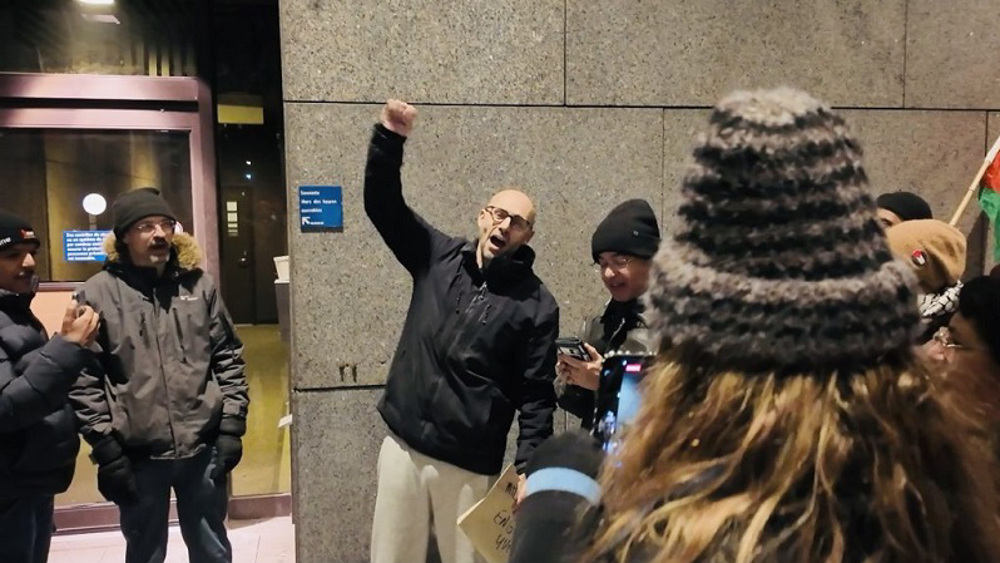
Canadian Zionist Lawfare against opponents of Gaza genocide

Israel's banking crisis

European preparedness strategy
Hind Rajab Foundation to file legal action ahead of Netanyahu’s planned trip to Hungary
VIDEO | Iran marks Islamic Republic anniversary
Russia warns of ‘catastrophic’ consequences if US attacks Iran
No such thing as ‘military option’ let alone ‘military solution’ to nuclear issue: Iran
Iran VP opens privately-owned $150 mln hotel in north Iran
Iran urges IAEA to take a clear stance against threats to its nuclear facilities
Palestinian teenager dies in Israel's jail after being held 6 months without charge
Pro-Palestinian student leaves US amid deportation threats


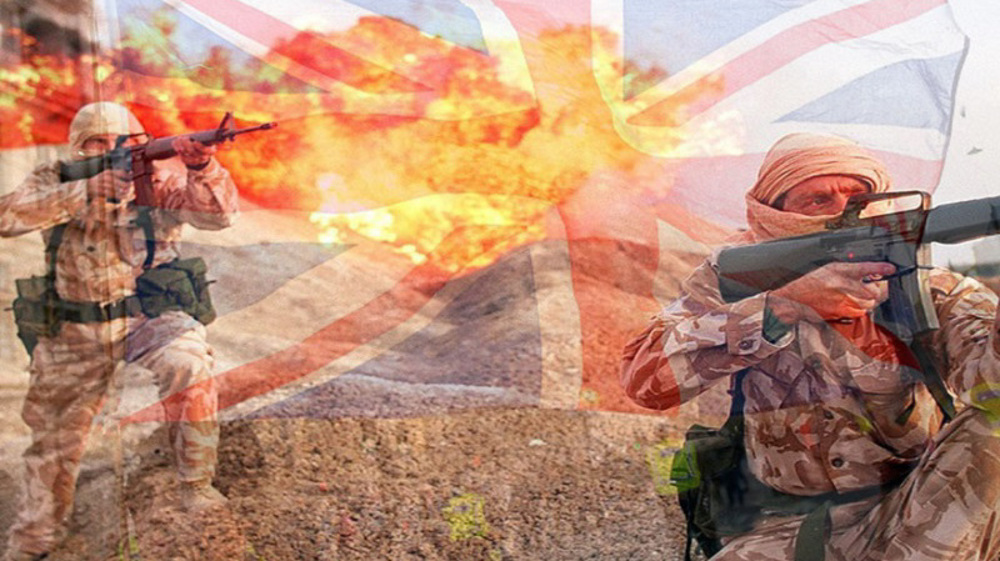




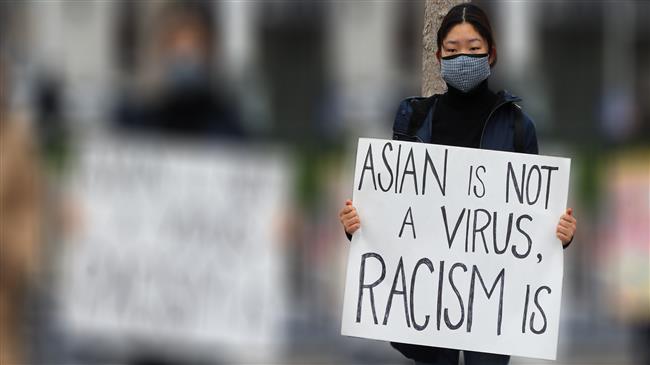
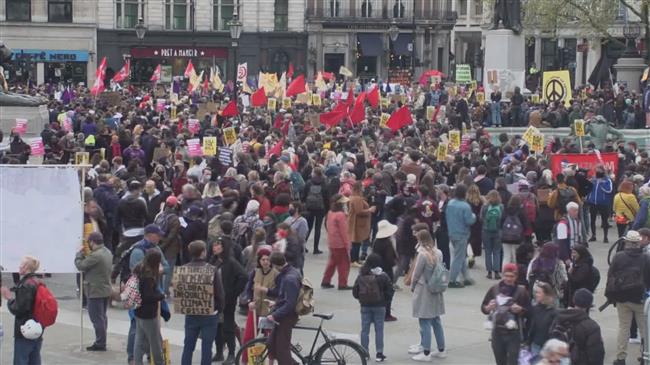
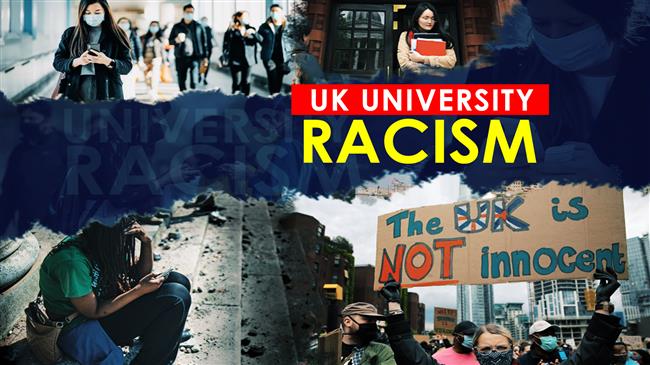
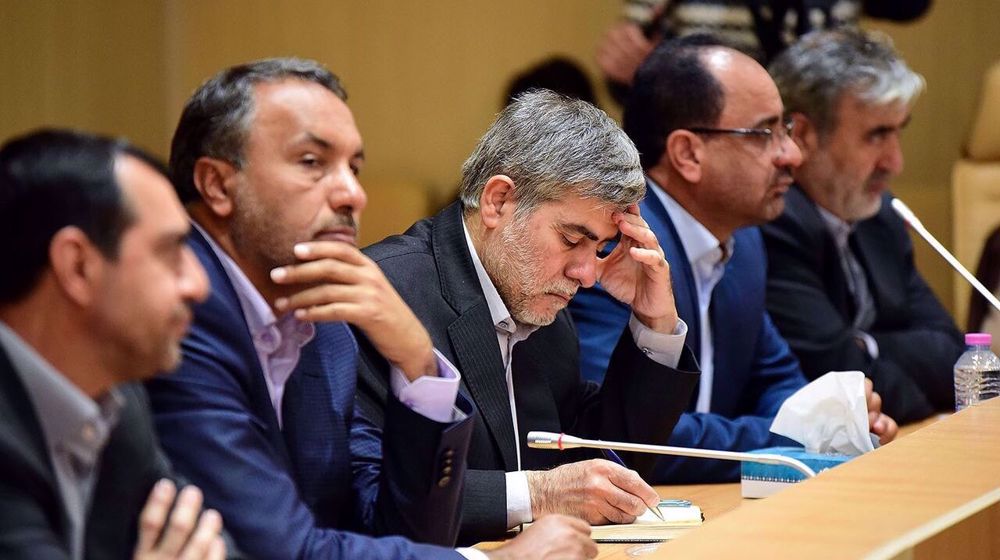
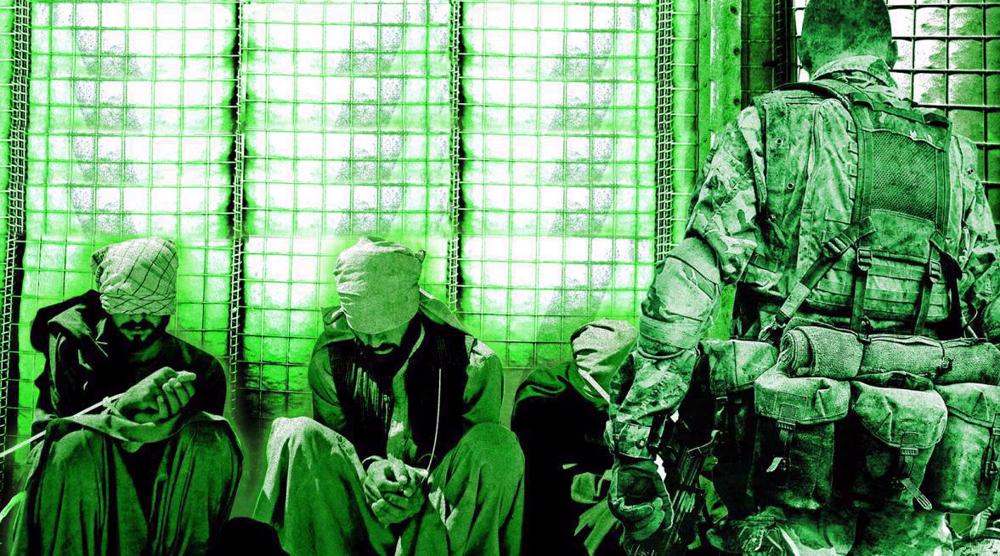

 This makes it easy to access the Press TV website
This makes it easy to access the Press TV website